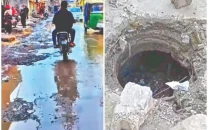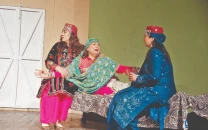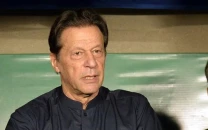Hafiz Naeem criticises political elite, launches nationwide membership drive
JI chief claims party is the strongest advocate for country's poor, working to add five million new members
1724926799-0/Untitled-design-(7)1724926799-0-640x480.webp)
Jamaat-e-Islami (JI) Chief Hafiz Naeemur Rehman criticised both the ruling and opposition parties for their focus on personal wealth accumulation rather than addressing the country’s core issues.
Speaking at a rally in Karachi on Sunday as part of JI's nationwide membership campaign, Rehman argued that the political elite are indifferent to critical issues such as water, electricity, gas, and fuel shortages. He asserted that these problems require decisive action to address the "crumbling walls" of the current system.
The JI chief denounced the current ruling class, which he described as comprising feudal lords, capitalists, and dictatorial figures, who he claimed have amassed significant wealth without being taxed. He also criticised the government for its agreements with Independent Power Producers (IPPs), which he said have burdened the public.
Rehman stated that JI represents the strongest voice for Pakistan's poor and is actively mobilising its base through a campaign aimed at securing five million new members across the country.
He called for a unified effort against what he termed a "tyrannical system" and promised to continue advocating for the public even if it meant taking the struggle to Islamabad.
The JI chief recalled the party's past success in Bangladesh, where it had played a significant role in challenging local authorities, and urged that Pakistan avoid a similar crisis.
He further criticised the Pakistan People's Party (PPP) for corruption and mismanagement, particularly in Sindh. He claimed that despite Karachi contributing significantly to provincial revenue, the local government spends the budget on lavish expenses rather than on the city's needs.
He accused the PPP of exploiting the people of Sindh and failing to decentralise power as required by Article 140-A of the constitution.
Moreover, Rehman condemned the alleged establishment's support for corrupt political figures and urged respect for democratic processes and public opinion. He maintained that JI is the only party addressing the concerns of the poor and middle class across Pakistan.



















COMMENTS
Comments are moderated and generally will be posted if they are on-topic and not abusive.
For more information, please see our Comments FAQ